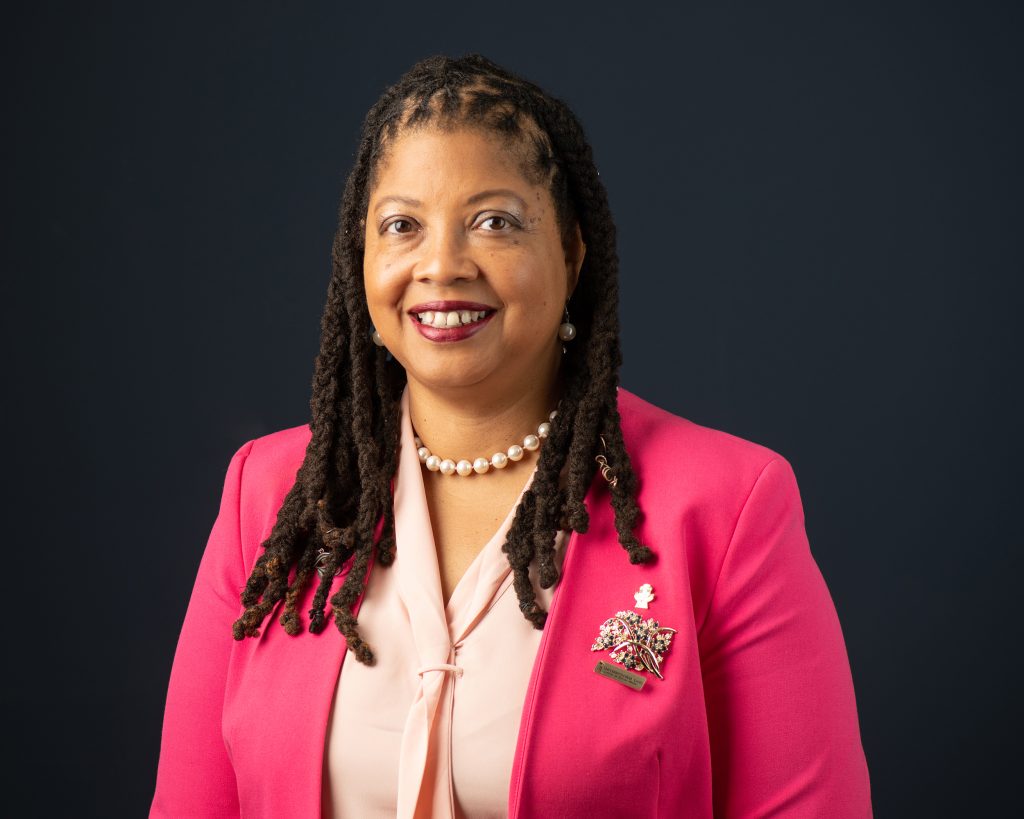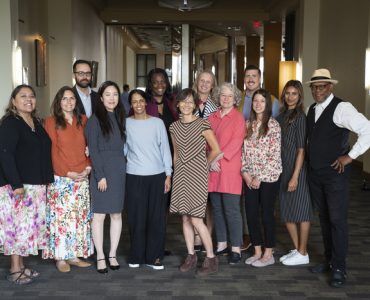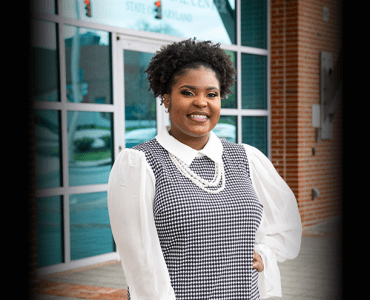
When Nadine Finigan-Carr, PhD, MS, assumed the role of founding executive director of the University of Maryland, Baltimore Center for Violence Prevention (CVP) in May 2022, she brought with her over 20 years of experience studying and implementing youth violence prevention programs.
With a PhD in health behavior and health promotion, Finigan-Carr is a prevention research scientist who has focused her research on the social factors that lead communities, especially youth of color, into risky behaviors that lead to chronic disease, injury, and violence.
Before taking on her role at CVP, Finigan-Carr was director of the Prevention of Adolescent Risks Initiative at the University of Maryland School of Social Work, where she is an associate professor. She also is an associate professor in the Department of Epidemiology and Public Health at the University of Maryland School of Medicine.
Growing up in Brooklyn, N.Y., as the daughter of immigrants from Trinidad, Finigan-Carr says straddling two cultures gave her unique insight into issues of power and representation, fueling her commitment to community-based research and advocacy.
You draw strength from your identities as an immigrant and a Black woman — how do those perspectives shape your approach?
I grew up in a Caribbean enclave in Brooklyn, but then we would actually go to Trinidad where people who looked like me were in power. Seeing Black achievement in Trinidad taught me we can succeed despite racism. When I would come back to the U.S. and hear people says things like, ‘Well, Black people don’t do that,” it gave me the standing to push back.
What message do you have for those who want to support violence prevention in Baltimore?
First, understand it’s complex, systemic work that requires collaboration. Then look for chances to uplift your neighbors — volunteer, attend community meetings, support local organizations. Advocate for youth programs and policies that address root causes. We become peacemakers through big and small acts.
What are you currently reading?
Like any good reader, I have a “to be read” stack next to my bed that never gets smaller. My current pile is Angela Davis’ new book, “Abolition: Politics, Practices, Promises,” and [actress and comedian] Leslie Jones’ new memoir. I needed something light while I was on vacation, so I just finished reading “Blood Grove” by Walter Mosley, the most recent book in the Easy Rawlins series. And then I keep going back to “No Real Choice,” which is about reproductive autonomy.
What is your vision for the future of Baltimore in 10 years?
I hope to be retired and enjoying it and enjoying my city. I tell people I’m from New York and originally my family’s from Trinidad. So, I say I walk with Trinidad in my heart. New York’s got my back, and Baltimore’s by my side. I want to be able to say that Baltimore, my Baltimore — that we’re walking hand in hand in communities that are trauma-free, equitable, and enjoyable.
What is something that people wouldn’t guess about you?
I make a really good kugel. There were three predominant cultural influences growing up in Brooklyn — Caribbean, Italian, and Jewish. I didn’t know what it was called until I made it for a friend, and they asked me, “When did you learn to make kugel?” I also make a really good lasagna.
Read more about UMB’s Center for Violence Prevention in this issue of CATALYST.



